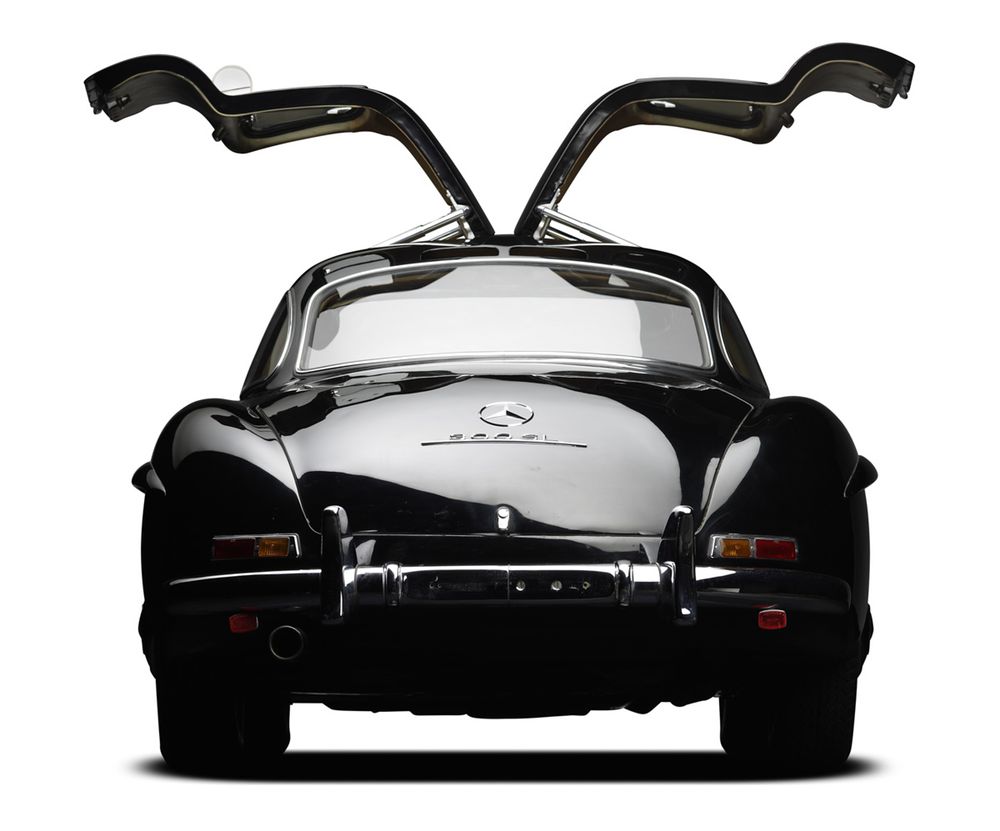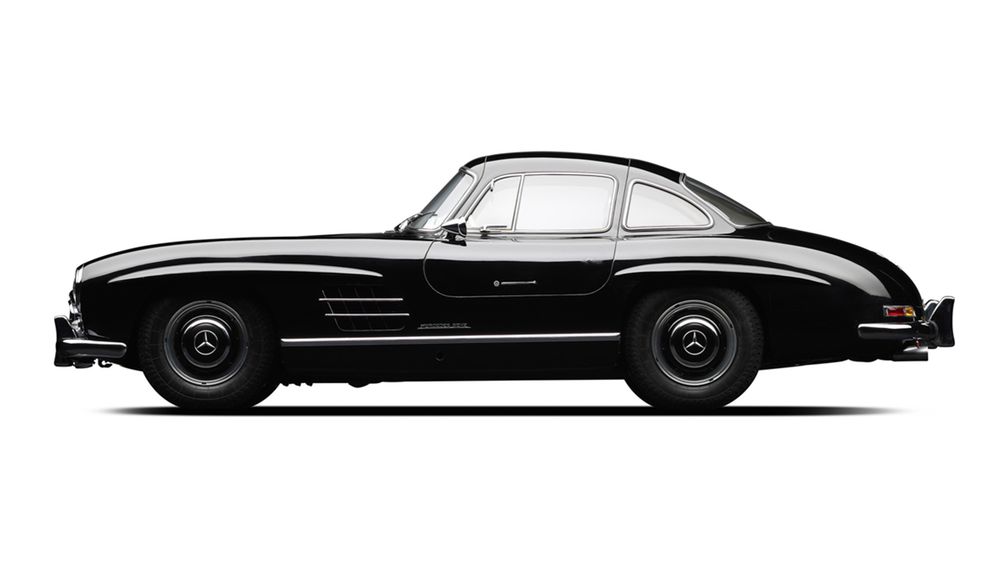Here’s an interesting article exploring what it was like to buy a Mercedes-Benz 300SL (or two) …45 years ago. Not only was it easier to find one in pristine condition, it was a whole lot more affordable!
Original Article – Petrolicious – April 16, 2015
Story by Dr. Frederick Simeone
Photography by Michael Furman for the Simeone Automotive Museum © 2015
Editor’s note: This is the first of several stories published with the help of Dr. Frederick Simeone and the Simeone Foundation Automotive Museum in Philadelphia, PA. This tale is a look at two “Gullwings”—and their somewhat related histories.
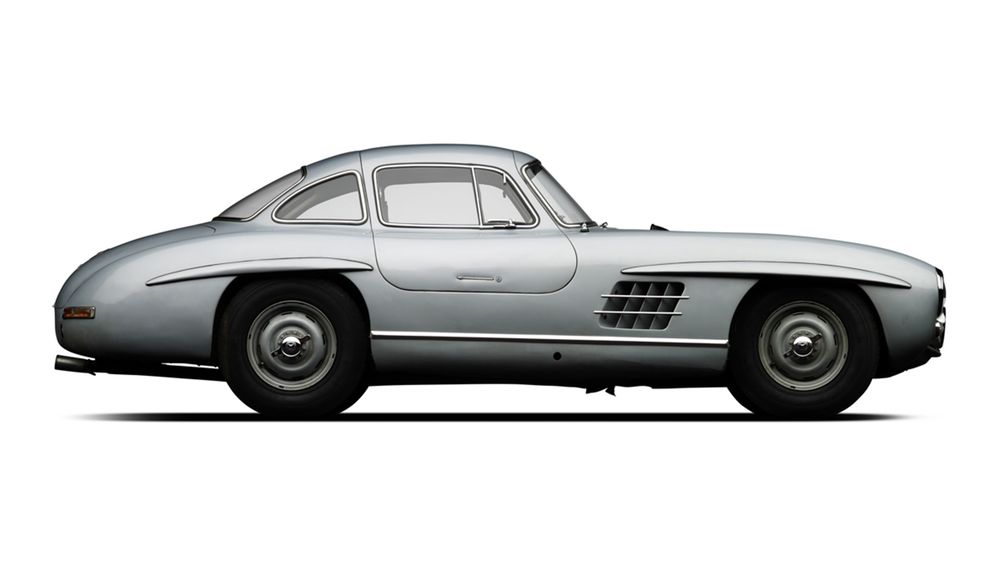
Back in 1970, with no Internet or regular magazines with large selections of collector cars, we often scoured the Sunday New York Times. It had an old car section full of great stuff, and most of it was local in the Northeast. I would read it religiously, but most of the cars were out of reach. There were plenty of Duesenbergs, but they were all over $50,000, and a medical student’s salary back then did not go very far.
I wanted something more usable, anyway, and because of my enthusiast dad’s influence, whatever it was had to have a strong sense of history, sport, great design—and all the other things he taught me to appreciate in a car.
Dad was a family doctor, general practitioner, and he was satisfied to work from a small office in our house, serving our community. He never made very much money. On this page, you can see a scan of his 1956 patient logbook—the only financial records he kept—showing how little you can make when averaging between $3–4 per visit. This typical page also shows how many people you could see in one day!
Before office hours, we would do house calls. They were kind of boring for me back in 1956, but often afterward we visited local junkyards or used car dealers. At that time, interesting cars of the mid-1930s were only 20 years old, and even then he helped me to realize that the cars someday might be important. Then, as is the case now, cars with classic “sporting” lines are the ones that land in the hands of sophisticated collectors.
Anyway, back to the New York Times: I found an ad from a suburban gentleman who was selling his 1955 Mercedes 300 SL Gullwing, with less than 30,000 miles—fitted with Rudge wheels—in great shape. The owner, a pool builder, took the car in exchange for his work, only to find that his wife found the car too difficult to manage, hot, and not particularly useful for uxorial duties.
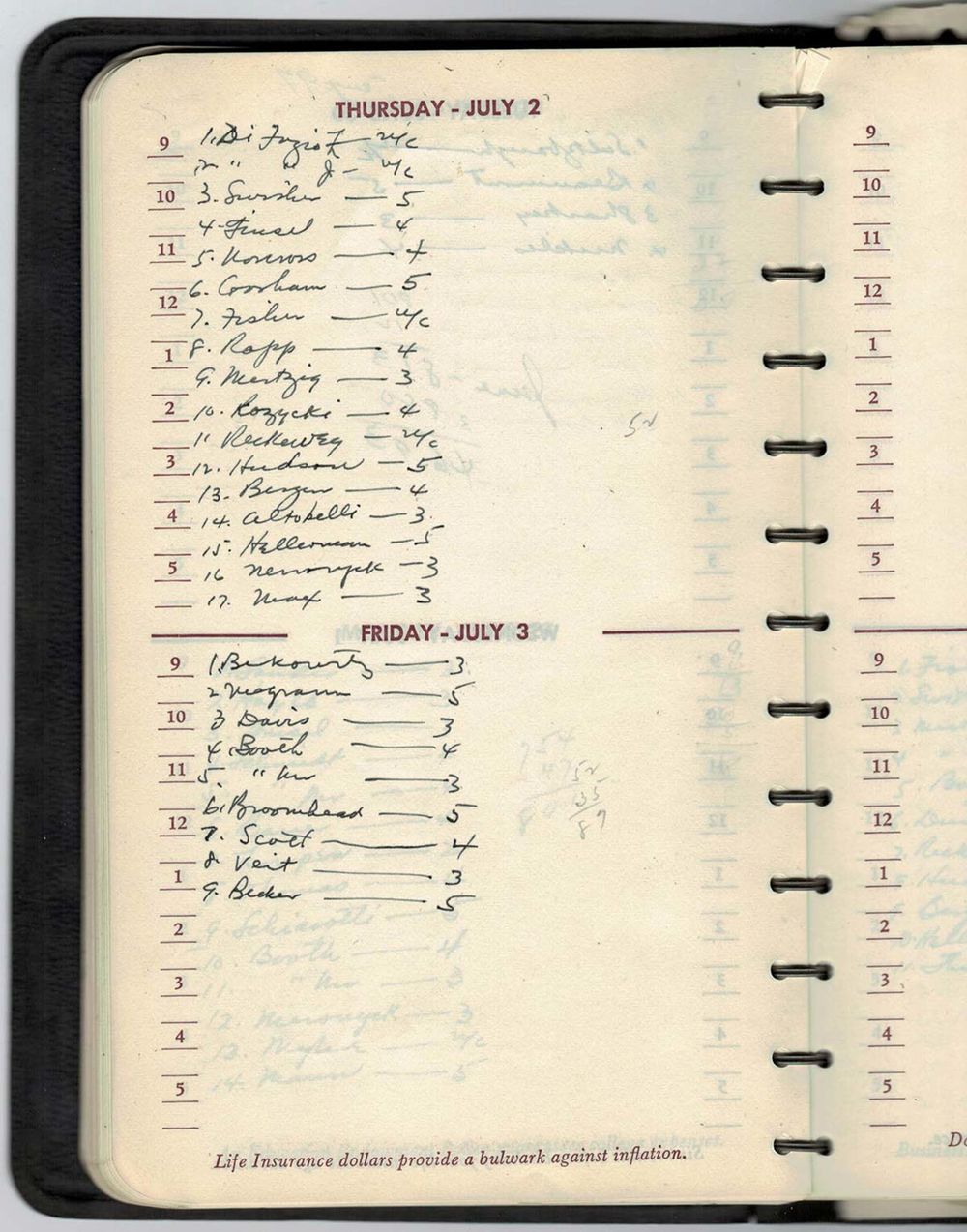
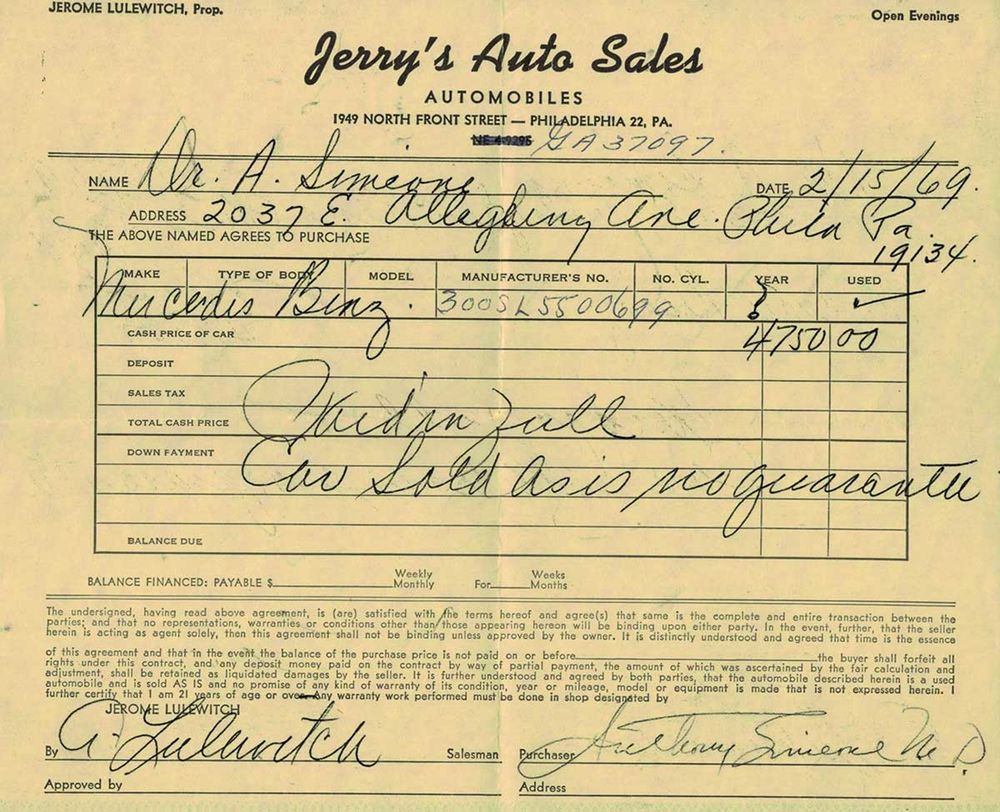
At this time, fortunately, it was near the nadir of its value, so we were able to strike a deal over the phone: I had squirreled enough cash to pay the asking price of $3,500 in “green”.
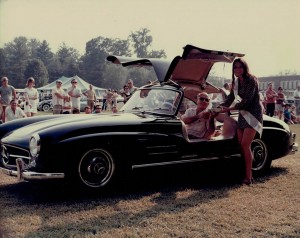 I called my girlfriend Jackie for transportation, because I knew I was driving this car home! The deal was made quickly, and the car was—and still is—in excellent condition, having sustained no serious adversities in the ensuing years. Of course, I drove it everywhere, parked it on the street, and except for the pilfering of the Becker radio as it sat in front of a hospital I’d rushed to for an emergency, it has survived the last 4 1/2 decades in great shape.
I called my girlfriend Jackie for transportation, because I knew I was driving this car home! The deal was made quickly, and the car was—and still is—in excellent condition, having sustained no serious adversities in the ensuing years. Of course, I drove it everywhere, parked it on the street, and except for the pilfering of the Becker radio as it sat in front of a hospital I’d rushed to for an emergency, it has survived the last 4 1/2 decades in great shape.
Dad never said much about it when I proudly took him for a ride. I could tell, however, that he had no objections to my choice—especially since I paid for it.
A few months later, I was driving by the Jerry’s Used Cars lot and there, in this low income part of town where we grew up, was a shiny black Gullwing sitting uncomfortably among some irrelevant American iron. Since I was on my way to visit Dad, I told him about it and he responded with a kindly but muted quip, “Well, we don’t need two of them.”
Understandable.
I continued to drive my Gullwing. About two months later, I drove by Jerry’s and the black example was gone. “Jerry, what happened to that black Mercedes?” I asked. He snidely replied, “Your dad bought it!”
I went home and, knowing that the game was up, he took me to the garage where he had already started to make it as beautiful as he could. That was not hard, because it had—and still has—its original black paint, which makes it look like a new car. However, as you can see by the bill of sale, he paid $4,750. This was significantly more than my $3,500, so I felt that I had one up on him!*
As it turns out, he had a lot more fun with his car. While I was consumed with medical studies, he was fixing up, taking it to shows, and, shown here, you see him proudly winning first prize at the New Hope Auto Show in 1971.
After the sight of the car and the cheesecake, check the proud look on his face! Both Gullwings are proudly displayed at the museum to this day.
* Adjusting for inflation, $3,500 in 1970 is about $21,000 US today; $4,750 is approximately $28,000.
